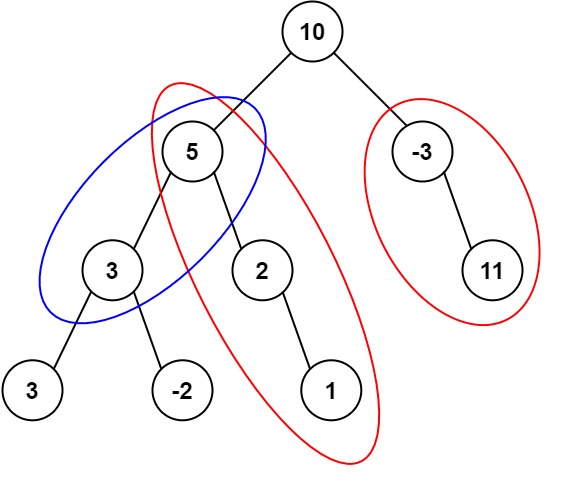LeetCode-in-All
437. Path Sum III
Medium
Given the root of a binary tree and an integer targetSum, return the number of paths where the sum of the values along the path equals targetSum.
The path does not need to start or end at the root or a leaf, but it must go downwards (i.e., traveling only from parent nodes to child nodes).
Example 1:

Input: root = [10,5,-3,3,2,null,11,3,-2,null,1], targetSum = 8
Output: 3
Explanation: The paths that sum to 8 are shown.
Example 2:
Input: root = [5,4,8,11,null,13,4,7,2,null,null,5,1], targetSum = 22
Output: 3
Constraints:
- The number of nodes in the tree is in the range
[0, 1000]. -109 <= Node.val <= 109-1000 <= targetSum <= 1000
Solution
/**
* Definition for a binary tree node.
* struct TreeNode {
* int val;
* struct TreeNode *left;
* struct TreeNode *right;
* };
*/
typedef struct TreeNode TD;
long int psWorkHorse1(TD *root, long int targetSum) {
long int sum = (root->val == targetSum) ? 1 : 0;
if (root->left) {
sum = sum + psWorkHorse1(root->left, targetSum - root->val);
}
if (root->right) {
sum = sum + psWorkHorse1(root->right, targetSum - root->val);
}
return sum;
}
int pathSum(struct TreeNode *root, int targetSum) {
if (!root)
return 0;
else {
long int sum = psWorkHorse1(root, targetSum);
if (root->left) {
sum += pathSum(root->left, targetSum);
}
if (root->right) {
sum += pathSum(root->right, targetSum);
}
return sum;
}
}

